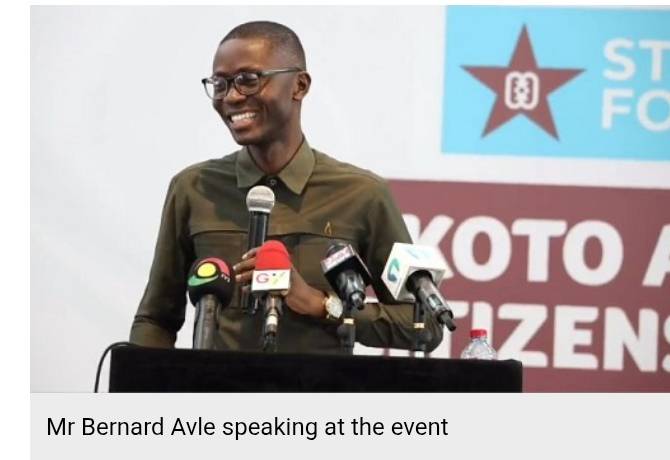Former Ghana Journalist Association Journalist of the Year, Mr Bernard Avle, believes that theatrics are a more effective way to raise awareness among Ghanaians about their rights and responsibilities than traditional lecture-based approaches.
He argued that theatre is the best medium to reclaim the Ghanaian cultural space, as people are more inclined to engage with entertainment than with direct lectures on how to improve their lives.
Mr Avle made these remarks at the 2025 STAR-Ghana Foundation Akoto Ampaw Active Citizenship Dialogue (AAACD) in Accra on Wednesday, February 19, 2025. The event aimed to promote civic engagement, participatory governance, and social accountability.
Delivering a keynote address titled "Inter-Generational Dialogue for Active Citizenship: Lessons and Opportunities for the Future," Mr Avle called for increased investment in the music, film, and arts industries to maximise their potential in shaping national consciousness.
Obrafour dates back to the 90s. He's an activist. The creativity and elegance of his songs actually hide the very powerful rhetoric that goes to the heart of the Ghanaian situation, and this is what geniuses do," he said.
"So they don't come to you just openly. They basically lace the food with whatever, rhythm and sound, but the message is very clear. So George Jara and Obrafour are in that category. Then I even argue that there are creatives who are cultural activists. People like Chief Moomen, with this Mansa Musa, because the truth is, until we own our stories and tell them in a way that is both entertaining and enlightening, we can never be free."
He continued: "The purpose of reclaiming our cultural spaces is that everybody wants to be entertained, but nobody wants to be lectured about how to improve their life. It's too boring. So you enlighten through entertainment. This is what Chief Mumin and many others are doing. He struggles with getting sponsorship to even organise that stage play. The South African Umoja, he is our version."
"He's an activist. You should hear him talk about Kwame Nkrumah, but because you laugh and enjoy it, you don't realise that he's changing you. I actually think we have more hope in the theatres to change the Ghanaian than in our lecture rooms, because every corner shop is watching television, and it's mostly soaps from outside."
He added: "If we could put resources into the likes of Nana Asaase, Chief Moomen, and Apiorkor, I can still be selling my food in my corner shop, laughing, but at the same time, I’m being told that I'm not inferior to the white man. I don't have to spit on the road. I can do better. Instead of importing a Brazilian telenovela to watch with Ghanaian subtitles, this is cultural activism."
The AAACD
Since its inception in 2021, the Akoto Ampaw Active Citizenship Dialogue (AAACD) has served as a platform for fostering civic engagement, participatory governance, and social accountability in Ghana.
Organised annually by STAR-Ghana Foundation, the dialogue brings together key stakeholders—including civil society organisations (CSOs), policymakers, academics, and active citizens—to discuss pressing national issues and explore pathways for strengthening active citizenship in governance.
Following the passing of lawyer Akoto Ampaw in 2023, the STAR-Ghana Foundation renamed the dialogue in his honour, recognising his lifelong dedication to democracy, human rights, and active citizenship.
Akoto Ampaw played a pivotal role in shaping Ghana’s civil society landscape, contributing to the promotion of inclusive governance, citizen participation, and social justice.
Through his tireless advocacy, he left an indelible mark on Ghana’s democratic journey. By renaming the event, STAR-Ghana Foundation seeks to keep his vision alive, ensuring that citizen activism remains a central force in Ghana's governance and development.




Alfred
Feb 20, 2025Keep on